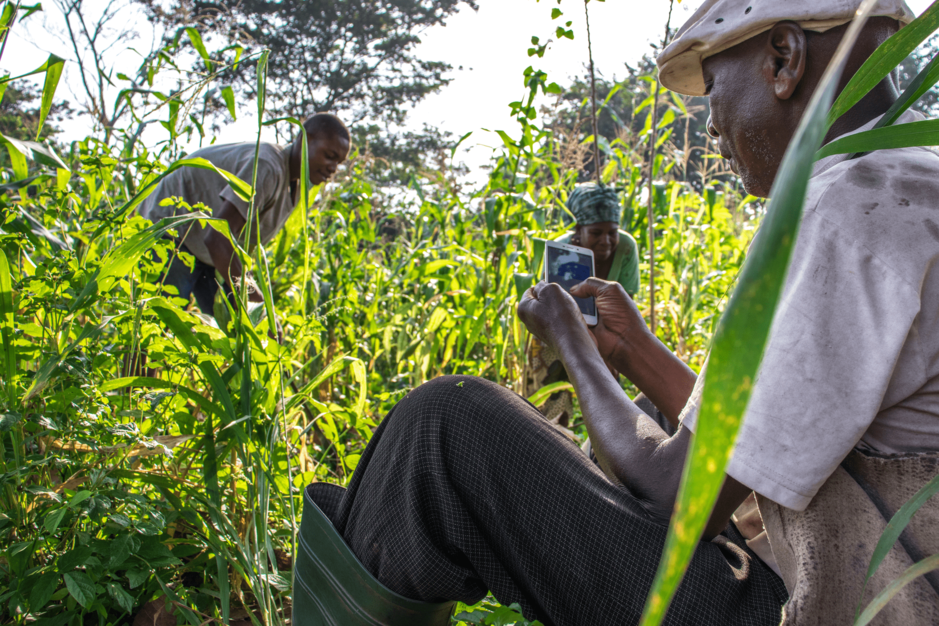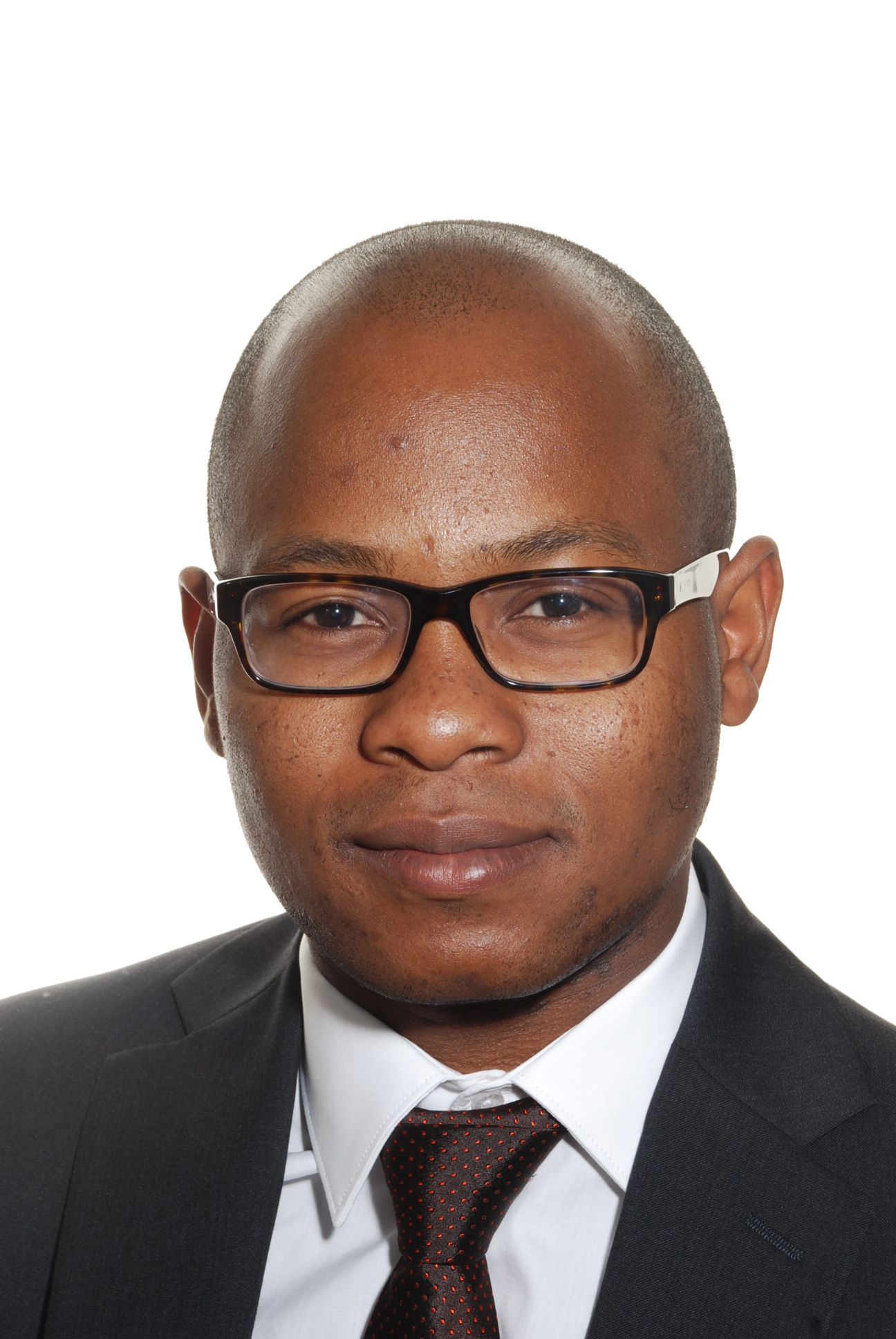Leadership that provides the most vulnerable populations with access to legal aid.
Holder of a doctorate in law, Efoé Dosseh-Anyron had an ambitious project – creating a "legal aid clinic" to provide the most impoverished people in his country, Togo, with access to legal aid and services. The "Lead Campus : Sustainable Leadership in Africa" program gave him the opportunity to fine-tune his action plan and take concrete steps to launch and establish his Djéna Clinic in both Lomé and Paris.

I chose to study law because it helps to make the world a fairer place
Some people end up studying law by chance. But this was far from being the case for Efoé Dosseh-Anyron, whose decision was inspired by the 1789 Declaration of the Rights of Man and of the Citizen. "I've always been deeply affected by inequality, and I learned very early on that law can play a positive role in making the world a fairer and more sustainable place. It promotes social inclusion, the sharing of wealth and a more egalitarian society. So, studying law was the obvious choice for me," he affirms.
As a professor of land law in Togo, he taught African customary law and Roman law (through the lens of French law). This experience helped cultivate his awareness of the rift between law and customs. "In 2010, major land law reforms took place in most countries in Africa," he explains. "In Togo, it happened in 2018. But it ended up creating a major gap between theory and practice, since the customary land chiefs in the villages were given no training in the new land use code. They neither knew nor understood the laws it contained. This resulted in widespread disputes. That's where I got the idea to start a legal clinic to help people apply the legislation that had come into force." However, to achieve his goal, Efoé needed to perfect his leadership approach.
A program to educate the purpose-driven leaders of the future
The aim of the Lead Campus: Sustainable Leadership in Africa program is to enhance the management skills of project leaders both in general terms and within the specific context of an African continent in transition. "This program was just what I needed to help me launch my legal aid clinic project," he states. During the program, participants are encouraged to imagine innovative business models to address the major transformations and challenges of a fast-changing world, such as resource management, carbon footprint reduction, and social inclusion. The objective? To inspire the purpose-driven leaders of the future, by providing them with the skills to achieve entrepreneurial excellence and meet the challenges of sustainable development.
"It's a rich and rewarding program," he adds. "The professors and facilitators gave me the methodological tools I needed to develop my legal aid clinic. I learned how to pick the right associates, how to ask the important questions in terms of ethics, and how to put together a business plan that incorporated a CSR policy. Being challenged by my peers during the various modules was also very beneficial. This wealth of collective intelligence helped me a lot. By working together, we were able to think up several different ways of obtaining financing. So, while continuing my educational work I was also able to get the process underway."

Efoe Dosseh-Anyron
Facilitating access to legal services for impoverished and vulnerable populations
In many African nations, disadvantaged population groups have little access to legal aid because they do not have the means to pay for the services of legal professionals. This observation was what led Efoé to draw inspiration from the American concept of the ‘legal aid clinic’, which he defines it as "a place where professionals and graduate students provide pro bono consultations." Before opening the first office of the Djéna Legal Aid Clinic, Efoé and his team trained students in the Togolese national land law (addressing matters such as property ownership, transactions, and neighborhood disputes, etc.). "We also provided them with the necessary support to develop their public speaking skills," he adds.
Some fifteen professionals and as many students now work with the clinic, which also has a branch office in France to serve the specific needs of the diaspora. But he doesn't plan to stop there. "What we're going to do next is work on other areas of development. We plan to open a center that focuses on labor law in the very near future because a new labor code was enacted in Togo this year. In 2022, we plan to organize a conference on land law, and develop partnerships with local municipalities. We also intend to start offering online consultations, set up a mobile service that will travel around to different villages, and duplicate our organization in other African nations." To achieve these ambitions Efoé knows that a strong sense of leadership will be essential.
The great leaders of today and tomorrow are purposeful leaders
Efoé discovered more about the concept of "purposeful leadership” during the Lead Campus: Sustainable Leadership in Africa program. It was very much a Eureka moment. "The idea of a leader endowed with a great ability to listen, who knows how to galvanize his teams and explain the fundamental purpose of the company to them in a way that gets everyone on board, really resonates with me. That kind of leader is able to develop relationships based on trust with his teams, promote sustainable development and respect the moral values we need to meet the major challenges we currently face" he explains.
"This is particularly important in Africa today, because young people are looking for a sense of purpose than ever. The coming decades will see a significant increase in the population, and leaders will need to consider these demographics carefully in order to create sustainable and shared wealth."
The leader of the Djéna Legal Aid Clinic has already embraced this approach and is delighted that colleagues and students have joined him on this human adventure that spans both France and Africa.